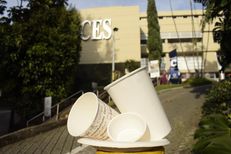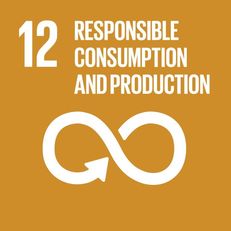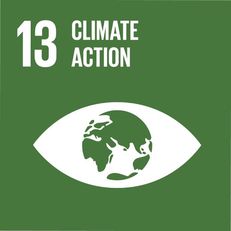2021 Creating Impact - Universidad CES - Colombia
Zero single-use plastic University
CES University, as a contribution to sustainability, became the first in the “Aburrá” Valley to say goodbye to PET bottles, disposable plates, and cutlery. All of them considered single-use plastics.
The decision was taken by recognizing scientific studies that indicate that plastic inputs such as expanded polyethylene, polyvinyl chloride (PVC), low density polyethylene (LDPE), polyethylene terephthalate (PET), are highly polluting materials. The vast majority of these elements end their life cycle in sanitary landfills or in the worst case in open-air dumps, generating negative impacts.
According to Greenpeace, micro-plastics can be ingested by marine fauna, including plankton, crustaceans, and fish. Every week a human being ingests the plastic equivalent to a credit card, through micro-plastics which are present in the water for human consumption.
Since 2019, CES University has acted and joined forces with suppliers to work towards sustainability. This is how the path to the implementation of the zero single-use plastics guidelines began in order to restrict 100% usage of all single-use plastics on Campus and thus avoid final disposal to sanitary landfills, resulting in contamination of water sources, high permanence in the environment, affecting fauna, flora, marine life, etc. We are eliminating the generation of plastic waste through prevention, reduction, reuse and recycling.
Top 3 learnings:
- Demystification in relation to the dependence of single-use plastics; it is possible to find alternatives to this type of element.
- 89% reduction of single-use plastics, which was generated on the University Campus.
- Opportunities to replicate and scale the practice, which contributes to the generation of culture.
Videos









 Except where otherwise stated, content on this site is
licensed under a Creative Commons Attribution 3.0 License.
Except where otherwise stated, content on this site is
licensed under a Creative Commons Attribution 3.0 License.
